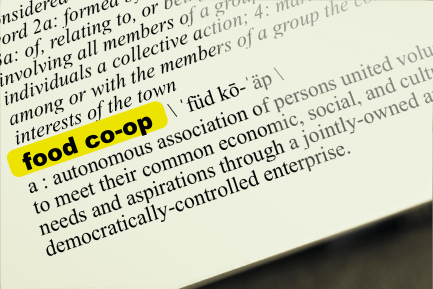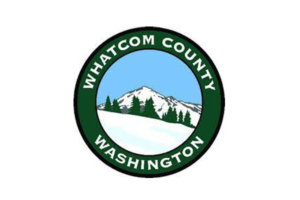“A co-operative is an autonomous association of persons united voluntarily to meet their common economic, social, and cultural needs and aspirations through a jointly-owned and democratically-controlled enterprise” (Neighboring Food Co-ops)
A co-operative can be used to accomplish a number of different purposes: to fulfill a need, to obtain a product or service, or to produce a product or service, for example. Co-ops are guided by the following values:
- Voluntary and open membership
- Democratic member control
- Member economic participation
- Autonomy and independence
- Education, training, and information
- Cooperation among co-operatives
- Concern for community
A food co-op, then, essentially is a grocery store that carries products and offers services that are decided by its members. By their nature, food co-ops transform the way business is done, often in contrast to other large grocery stores. They work to increase the market and access for locally produced food and prioritize business practices that are good for people and their community.
The purpose of food co-ops is not to accumulate profit for investors but to meet the goals of its members. Co-op members, also known as “owners,” choose what foods and products are sold and where they are sourced and set standards for negotiating prices that ensure fairness across the whole food supply chain. Co-ops are governed by members who vote on a board of directors and impact the co-op’s future direction. Moreover, any surplus generated by a co-op is reinvested in the business or returned to the members based on their use of its services.
Types of Food Co-ops
Food co-ops are unique in that they are owned and democratically governed by their members, who could be consumers, workers, producers/farmers, or a combination of these.
Consumer-Owned Co-operatives
The most common food co-ops are consumer co-operatives, which are owned by members who use the co-op to purchase the goods or services that they need. Membership in the co-op is obtained through an annual or one-time fee and entitles the member to one vote in matters that come before the members. Owners typically receive financial rewards like discounts and coupons. By combining member demand, the co-op can provide better availability, selection, pricing, or delivery of products or services to individual consumers. Examples: Twin Cities Coop Partners; PCC Markets.
Worker Co-operatives
Worker co-operatives are businesses that are owned by their workers who then control the operations and strategic direction of the business. Workers are able to directly benefit from the organization’s profits, which are distributed based on job position, hours worked, tenure, and salary. Example: Mandela Foods Co-op, Oakland
Producer Co-operatives
Producer co-operatives are owned by people who produce similar types of goods or services. The most common producer co-ops stem from food hubs where members can more effectively negotiate prices and access larger markets through aggregation. Food hubs can further process member products to add value and increase producer returns. Producer co-ops are more likely to supply grocery retailers. Example: Wisconsin Food Hub Cooperative
Hybrid Co-operatives
Hybrid, or multi-stakeholder co-operatives are owned by two or more types of members who have different roles and interests that more broadly benefit them all. The most common hybrid includes both worker-owners and consumer-owners. Example: Weaver Street Market, North Caronlina
Benefits of Food Co-ops
Every co-op looks a little bit different because they truly are reflective of the communities they serve. The benefits of co-ops are not only for members, as anyone can shop at these stores. Typically, co-ops aim to offer high-quality foods at fair prices—for shoppers and producers. For example, many offer a bulk foods section with grains, nuts, snack, spices, and more available at lower prices.
Co-ops build strong bonds between the people who supply products and the people who use them. They often offer additional services such as cooking classes, producer education, field trips to local farms, and even kitchen or storage space for food entrepreneurs.
More importantly, co-ops help keep money in the local economy by supporting local growers, small food businesses, and so on. Recently, they are popping up in food deserts— low-income urban neighborhoods, rural communities. Their flexible business model brings needed investment (and food) into overlooked areas. With the prevalence of food insecurity in cities and small towns everywhere, New Venture Advisors is excited to see a new wave of food co-ops with this change in market focus.



